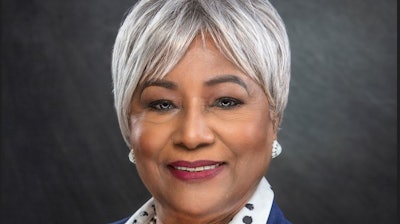As the call for equity for all students grows louder, community college educators (and other sector leaders) seek to implement equity initiatives to decrease outcome disparities. But something is missing in the conversation and implementation strategies. This author argues that cultural responsiveness and institutional policies and practices must be deeply integrated into the equity conversation.
 Dr. Christine Johnson McPhail
Dr. Christine Johnson McPhail
An examination of cultural responsiveness policies and practices aids institutions in identifying gaps in their policies and practices. In an era of increasing diversity and globalization, institutions are challenged to foster environments that are not only fair and just but also inclusive of diverse cultural perspectives. To address this imperative, it is necessary to integrate cultural responsiveness into institutional policies and practices. Cultural responsiveness ensures that policies and practices are designed to embrace and celebrate diversity, enriching the institutional climate.
What is cultural responsiveness? Cultural responsiveness refers to the ability of individuals, organizations, or systems to recognize, respect, and effectively engage with diverse cultures. It involves an awareness and understanding of the customs, traditions, beliefs, and values of various cultural groups, and a commitment to incorporate this understanding into interactions and decision-making processes. This approach recognizes the uniqueness of each culture and strives to adapt communication, policies, and practices that are respectful and accessible to all, fostering a sense of belonging and equity.
In other words, cultural responsiveness is a multi-faceted mindset that helps individuals consider all aspects of a culture other than their own when interacting with each other. This mindset enables all individuals who use it, including administrators, to work effectively, compassionately, and dynamically across cultural boundaries. The author argues that the ultimate realization of institutional cultural responsiveness is the creation of culturally appropriate policies, procedures, and attitudes.
Culturally responsive policies and procedures play a pivotal role in creating an educational environment that encourages the success of marginalized students. By recognizing and addressing the unique cultural needs of students, educational institutions can break down barriers and provide a more inclusive and empowering experience, ultimately contributing to students’ academic achievement and personal development.
When an institution lacks culturally responsive policies and practices, it risks perpetuating disparities, alienating diverse populations, and hindering the overall wellbeing of the institution. Without a commitment to cultural responsiveness, the institution may inadvertently marginalize certain groups by maintaining policies that do not consider the diverse needs and perspectives of its students. Furthermore, a lack of cultural responsiveness may contribute to misunderstandings, miscommunication, and a general lack of awareness, fostering an environment that is not conducive to teaching, learning, and collaboration. In the absence of policies and practices that actively embrace cultural responsiveness, the institution may struggle to create an inclusive atmosphere and impede the development of supportive and equitable achievement outcomes. Overall, the absence of cultural responsiveness policies and practices within an institution can negatively impact students’ educational experiences and hinder the institution’s ability to foster a thriving and harmonious teaching and learning community.
The commitment to cultural responsiveness strengthens trust among stakeholders and enhances the institution’s reputation for inclusivity. Informed decision-making rooted in cultural insights results in more effective and sustainable solutions.
Agreement between policies and practices and cultural responsiveness is significant because it acknowledges that students’ cultural backgrounds and experiences influence their learning and academic success. By understanding and valuing students’ cultural differences, educators can create an inclusive learning environment. To promote awareness of and sustain attention to disparities in higher education, community colleges need the support of the external community.
For multiple decades, Diverse: Issues In Higher Education has served as a supportive and critical friend to community colleges and played a pivotal role in advancing diversity, equity, and inclusion in higher education. By consistently highlighting the challenges and successes of underrepresented groups, the publication fosters transparency and awareness within academic institutions. It serves as a critical voice and platform for sharing insights, best practices, and success stories that empower leaders and institutions to implement more inclusive policies. The publication’s focus on diverse perspectives and experiences helps institutions of higher learning create a more equitable educational landscape and promote a culture of understanding and acceptance. Through its coverage, Diverse supports leaders in championing diversity and equity, ultimately contributing to a more inclusive and representative educational environment.
Dr. Christine Johnson McPhail is the President/CEO of the McPhail Group LLC in Raleigh, North Carolina.
The Roueche Center Forum is co-edited by Drs. John E. Roueche and Margaretta B. Mathis of the John E. Roueche Center for Community College Leadership, Department of Educational Leadership, College of Education, Kansas State University.
![Sm 7791 Soft Final[273284]](https://img.diverseeducation.com/files/base/diverse/all/image/2023/02/SM__7791_soft_final_273284_.63f03279efba2.png?auto=format%2Ccompress&crop=faces&fit=crop&h=48&q=70&rect=0%2C54%2C1920%2C1920&w=48)





















